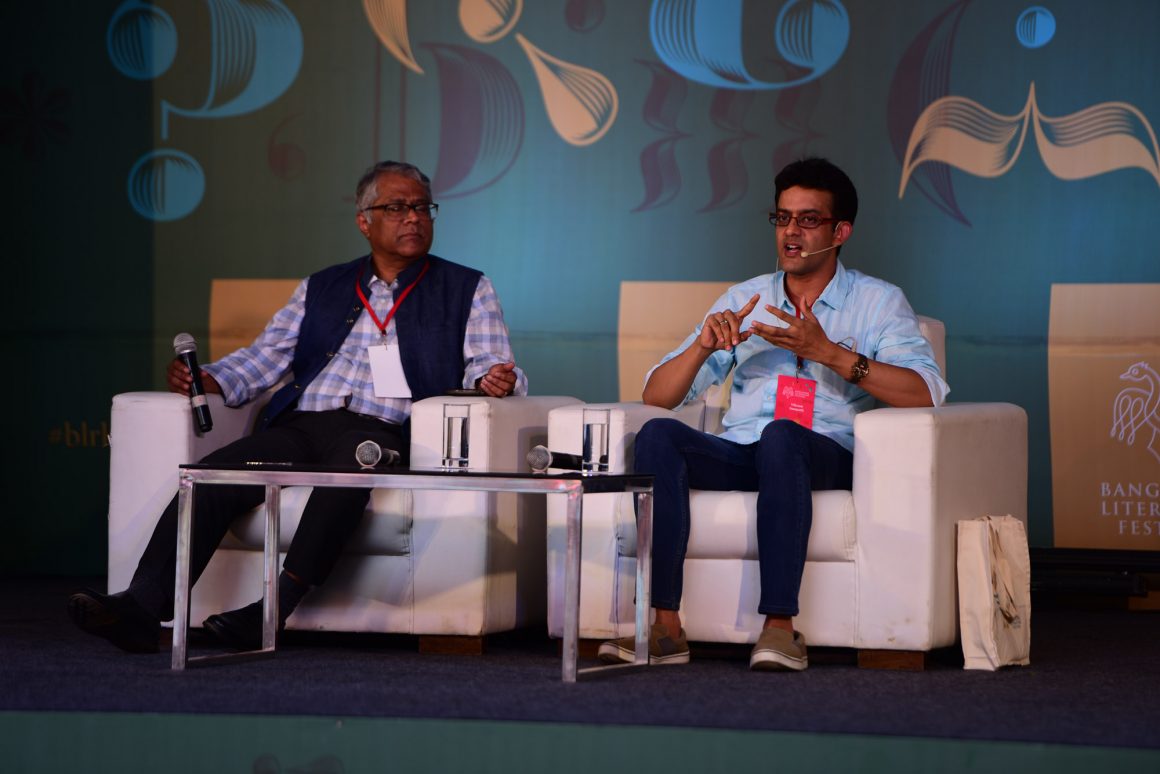Is the economy in the passing flu, or is it strong? Narayan Ramachandran introduces the debate with this question to the key economists – Dr. Indira Rajaraman, Dr. R. Jagannathan, and Vivek Kaul.
The session proceeded as each economist took their stand about the question posed by Ramachandran. Indira talked about how she would not call the present economic phase of India, flu. It is merely a global slowdown, as has been ongoing since demonetization. Neither is the economy in the Intensive Care Unit, as Narayan had suggested, as the economy is not terminally ill. She referred to the World Bank report, that ranked India in terms of its growth and advocated the present economic state to one major failure- the failure to enforce contracts. Indira calls the deferral of payments an “Indian disease”.
Jagannathan took a more critical look at the land reforms and its implementation. There have not been enough reforms since 1991, and there were very few reforms at the macroeconomic level. He posited on the effects of technology- how these effects can be utilized to polarize the workforce. “We have to address this structural thing of business,” said Jagannathan.
The mic was passed on to Vivek Kaul, who asked the audience to raise their hands if they had taken an uber or an ola to the occasion today. He, thus, proceeded to prove his point about car sales. He stated how there has been a 30% drop in car sales. He proceeded to blame the Modi government, and how they have failed to acknowledge the problem. In a very engaging explanation, Vivek told the audience how salaried incomes have no growth, and the real incomes have fallen. Vivek calls the current economic problem to be structural, as well as cyclical. The economy will soon end up in the ICU.
“The patient is seriously ill”, Narayan commented by synthesizing the economists’ arguments. The question raised, however, is how should we tackle the structural issues in this cyclical slowdown?
Indira stated her views first, by saying that the problem is mainly a ‘legacy issue’. The government should not be defensive. The argument about fiscal deficits was raised by her, as companies going into default will have a negative impact. “The fisc is deeply troubled”, she said as she ended her argument.
Jagannathan made a funny statement about how most of the problems are due to economists themselves. They, themselves, are very contradictory in their approach towards the economic problem. He told the audience not to worry about the fiscal problem. His approach was more central to the non-economic reforms, like agricultural and police contract reforms.
Vivek Kaul took up a different approach to the argument. He did not agree with the fiscal deficit argument, he thought that the government should cut down it’s spending. The problem was where the government is spending, not why.
So, what do we do now? In the current ‘economic flu’, how do we deal with its problems?
The economists ponder over the thought, as Vivek Kaul took the mic. He said that the consumption has to go up, as no cooperate will invest unless the capital utilization picks up. Indira, as well as Jagannathan, considered the solution to be government expenditure towards the poor. Indira commented on how the construction sector has been vastly affected by the GST, and our next step is to plead to the government to bring the levy down. She said, “The government can be a part of the solution, only when it recognizes the problem”- a statement that received applause from the audience.
Thus, Narayan concluded the debate, stating that even if he was holding back his own opinion on fiscal deficits, the emphasis on the fiscal deficits should go. The government should make payments where it is due.
About the Author: Passionate about saving the environment, and driven by politics and philosophy, Anusha Basu writes about the musings she perceives everyday. She is currently pursuing her English Hons degree at Christ University, Bangalore. She currently writes for TheSeer.

